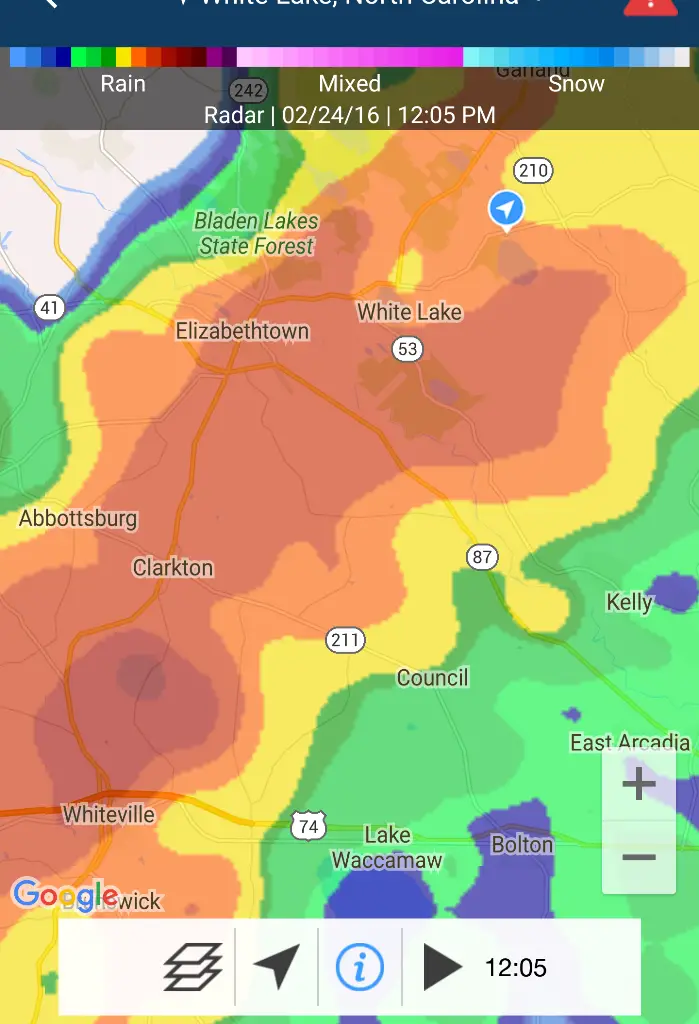
One thing I always try to educate fellow campers on is that RVs and bad weather don’t mix. RVs are not safe in severe weather like lightning and thunderstorms with high winds, tornadoes and hurricanes. What I try to emphasize is you always need to have a plan in the event a bad storm is approaching the area where you are camping. Weather conditions can change quickly and frequently and you need to be prepared ahead of time.
When you are home you know what the weather forecast is by reading the newspaper, listening to the radio or watching television. When you travel in your RV you don’t always monitor the weather where you are traveling, or where you might stop to spend the night.
Let’s take a look at how you can develop an RV emergency weather plan:
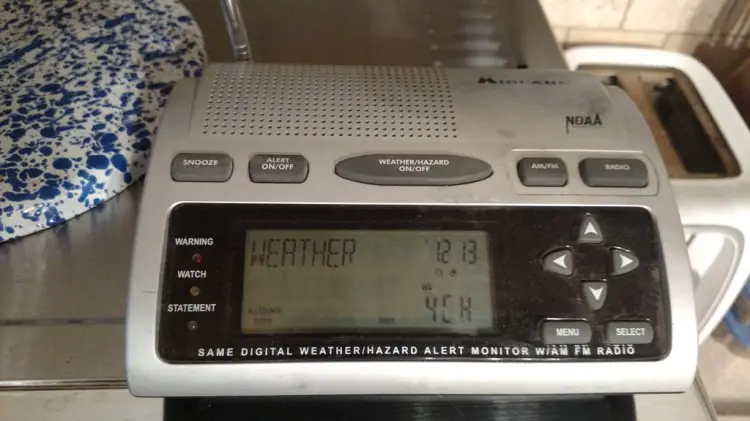
- Access Weather Information & Alerts: With today’s mobile devices it’s easy to get Apps for current weather information or severe weather alerts. This works especially well when you are traveling in your RV. For those who don’t have a smartphone, or when you don’t have a good cellular signal, I recommend you purchase a weather radio receiver. Receivers are available at most retail stores that sell electronic equipment. Prices can range anywhere from $25 to $200 depending on the quality of the receiver and its features. It is well worth the investment to know what type of weather to expect when traveling or camping in your RV. When you are at home you can use the weather radio receiver in your house. For more information on the NOAA Weather Radio visit their website at nws.noaa.gov/
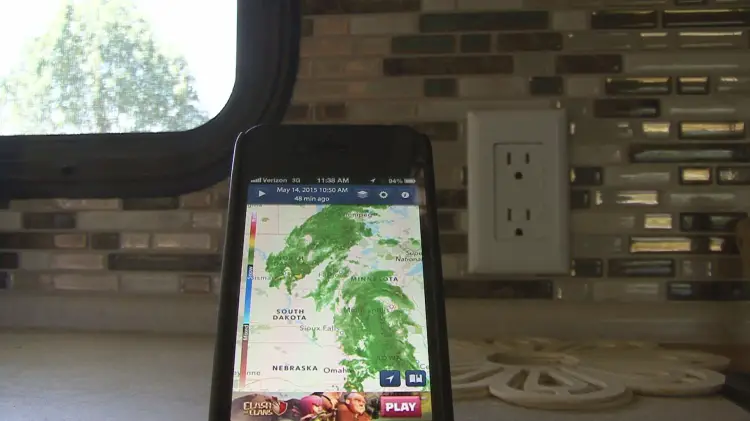
- Monitor Weather Information & Alerts: When you arrive at the campground tune the receiver into a local channel broadcasting continuous weather information directly from a nearby National Weather Service Office. Emergency weather watches and warnings are for counties and towns, so always check and know what county or town you are staying in. If you are using a phone or other device to receive weather alerts make sure you have a strong signal where you are staying. It’s quite possible to receive phone calls and text messages but not be able to send or receive data. If you cannot receive data you cannot receive weather alerts.
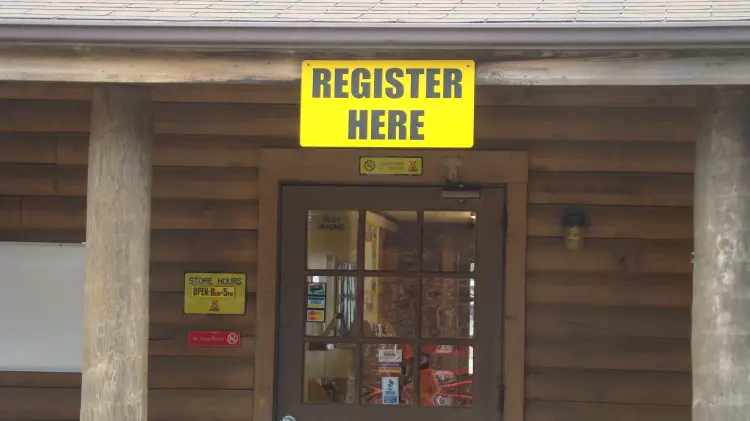
- Develop an Emergency Evacuation Plan: This is important! When you arrive at a campground ask at the check-in desk about an emergency plan in case of a severe storm such as a tornado, or a thunderstorm with high winds. If they don’t have a plan you need to make your own. Locate a structure that is safer than your RV, like a bathhouse or the campground office. Always stay on the lowest level possible and stay away from doors and windows.
- Brief Everybody on the Emergency Plan: Explain to children how to respond to different disasters and the dangers of severe weather, fires, and other emergencies. Instruct children on emergency exits and on how and when to call 911.
- Know What your Job is During an Emergency: Make sure everybody traveling in the RV knows exactly what his or her job is in case of severe weather or other emergency. Adults need to know how to use a fire extinguisher, but children should never attempt to put a fire out. Make sure everybody knows what to do and where to go in the event of an emergency.
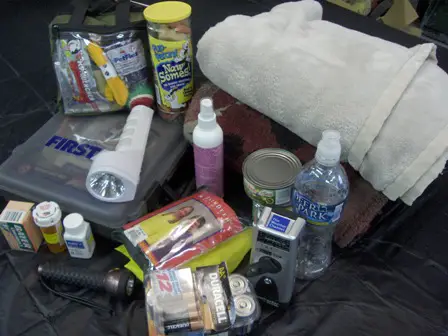
- Have an Emergency Supply Kit: Your emergency kit should be made up and easily accessible. Some items to consider adding to your kit are: flashlights, batteries, rain ponchos, a portable weather radio, first aid kit, non- perishable packaged or canned food and a manual can opener, blankets, prescription and non-prescription drugs, pet supplies, bottled water and any special items for infants, elderly or disabled family members.
- Get Educated on Emergency Preparedness: Educate yourself on how to prepare and react to different types of severe weather you might encounter when you are camping in your RV. To learn more about emergency weather preparedness take a moment to visit http://www.nws.noaa.gov/
The bottom line is RVs are not safe in severe weather! This includes severe thunderstorms with high winds, tornadoes and hurricanes.
Learn about the different types of weather hazards, get a portable weather radio if you don’t have one, create a plan with your family, practice and maintain the plan.
Our best-selling Checklists for RVers e-book offers checklists for every RV topic imaginable to include emergency preparedness.
Be safe & have a great camping season.
Mark Polk
Subscribe here to receive our free RV Education 101 monthly newsletter
“We are a participant in the Amazon Services LLC Associates Program, an affiliate advertising program designed to provide a means for us to earn fees by linking to Amazon.com and affiliated sites.”